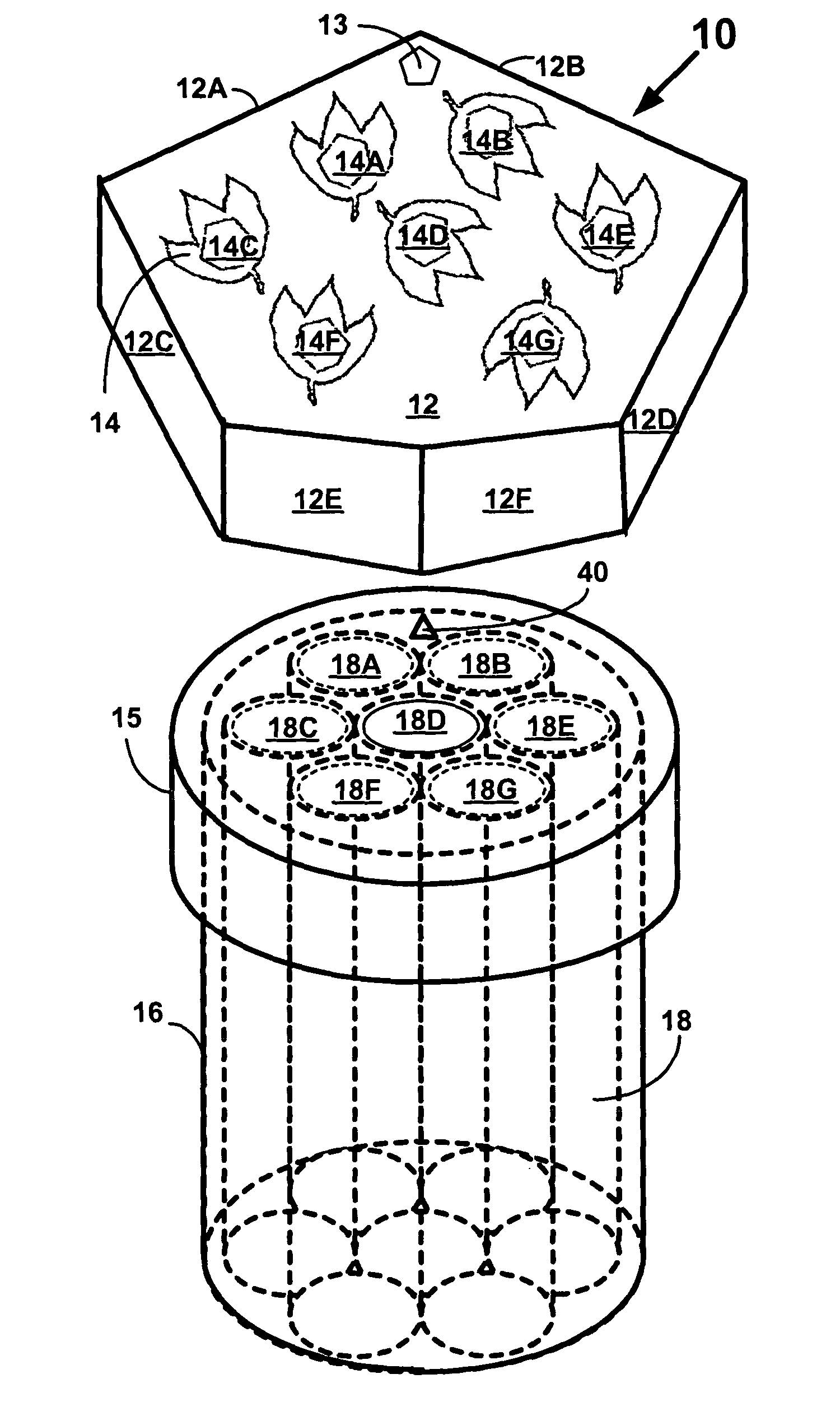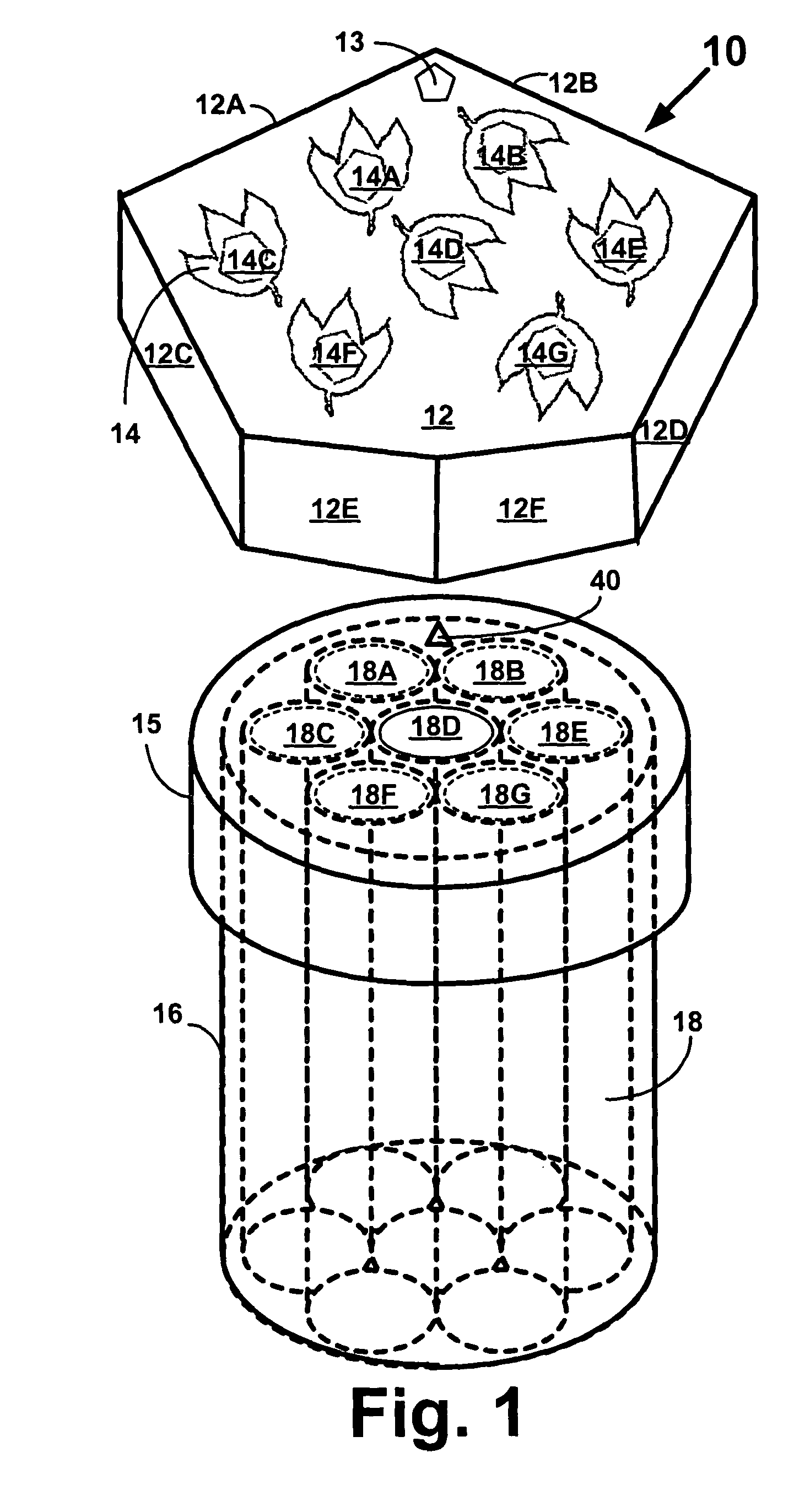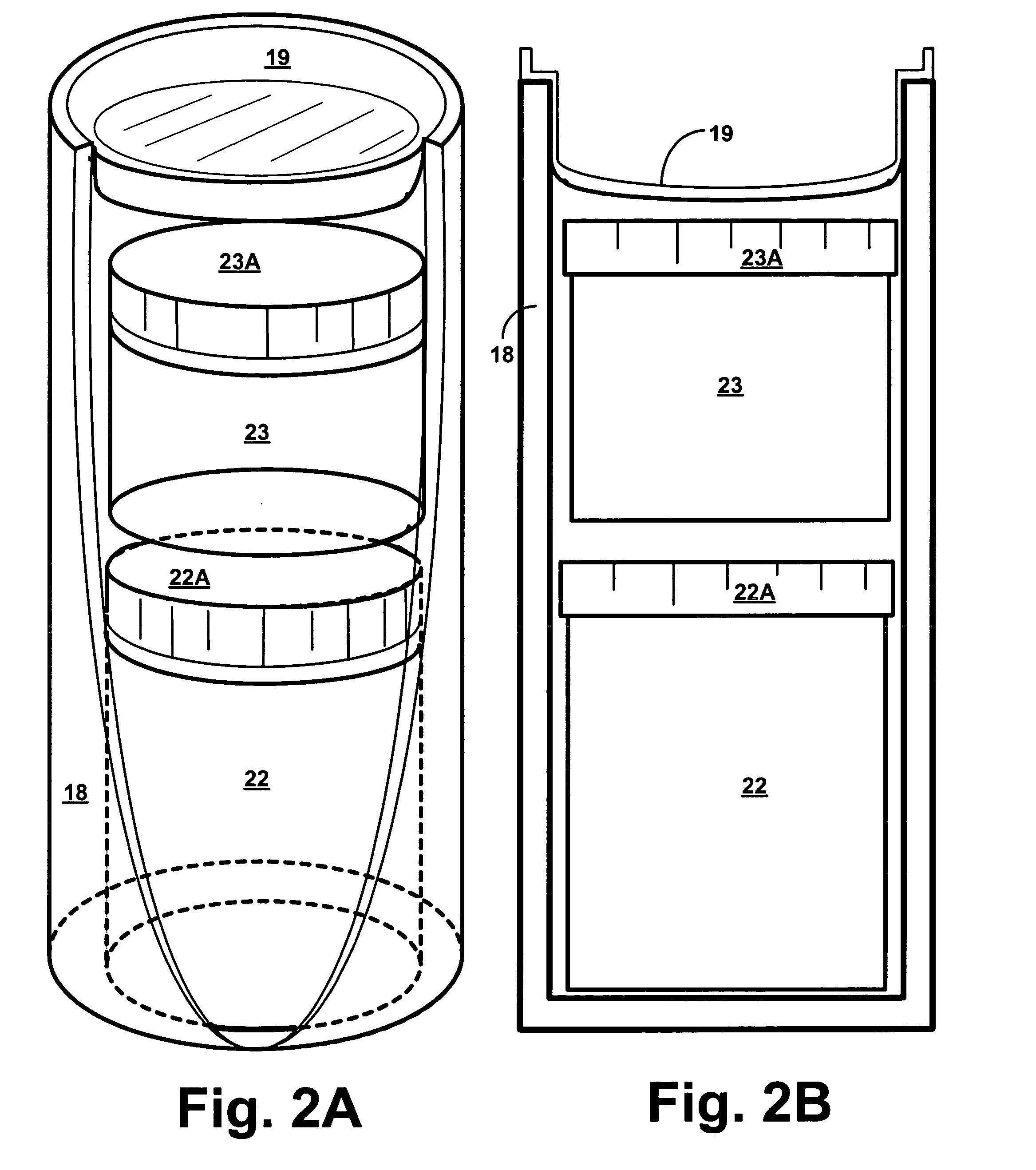Apparatus and methods of burial using a columbarium pod
a technology of a columbarium and a solitary chamber, which is applied in the field of storing cremated remains, can solve the problems of affecting the aesthetics of the site, affecting the preservation of the site, so as to prevent the slippage of stones
- Summary
- Abstract
- Description
- Claims
- Application Information
AI Technical Summary
Benefits of technology
Problems solved by technology
Method used
Image
Examples
Embodiment Construction
[0094]Generally, the present invention relates to apparatus and methods for burial using a columbarium pod, and more specifically, to an underground single pod and multi-pod burial systems and methods for storing cremated remains. Many specific details of certain embodiments of the invention are set forth in the following description and in FIGS. 1–42 to provide a thorough understanding of such embodiments.
[0095]FIG. 1 is a perspective view of a multi-pod columbarium burial system 10 in accordance with an embodiment of the present invention. The multi-pod columbarium burial system 10 includes a stone 12 having a plurality of memorial plaques 14. By the term, “stone” it is meant to be a poured and cured concrete cover or other formed and durable material serving as a removable cover or removable door in which the surface has a stone-like appearance or other decorative appearance. The term “stone” also may mean a carved cover made from natural stone materials, for example, granite and...
PUM
 Login to View More
Login to View More Abstract
Description
Claims
Application Information
 Login to View More
Login to View More - R&D
- Intellectual Property
- Life Sciences
- Materials
- Tech Scout
- Unparalleled Data Quality
- Higher Quality Content
- 60% Fewer Hallucinations
Browse by: Latest US Patents, China's latest patents, Technical Efficacy Thesaurus, Application Domain, Technology Topic, Popular Technical Reports.
© 2025 PatSnap. All rights reserved.Legal|Privacy policy|Modern Slavery Act Transparency Statement|Sitemap|About US| Contact US: help@patsnap.com



